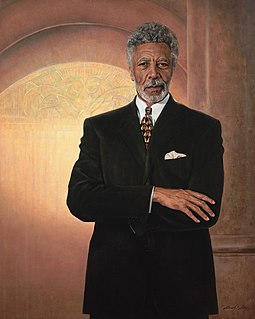A Quote by Nate Parker
We have a tendency to sugar coat the Civil Rights movement by showing arm in arm and everyone singing 'Kumbaya'. We don't really always show the resistance from the government, the resistance from the status quo, from the majority to silence the movement.
Related Quotes
In less than a century we experienced great movement. The youth movement! The labor movement! The civil rights movement! The peace movement! The solidarity movement! The women's movement! The disability movement! The disarmament movement! The gay rights movement! The environmental movement! Movement! Transformation! Is there any reason to believe we are done?
There was a resistance movement in the white community, and there was a determined civil rights movement by our neighbors and friends in the African-American community. They had right on their side. They conducted themselves in high standards, with courage and determination, and they were victorious. They overcame.
I think one of the tragedies of the civil rights movement was because the civil rights movement became so court-focused, I think that there was a tendency to lose track of the political and community organizing, and activities on the ground, that are able to put together the actual coalitions of power throughout which you bring about redistributive change. And in some ways, we still suffer from that.
The invasion of Lebanon by Israel .. is a monstrous injustice. I side with the resistance to that injustice. Hizbollah is leading that resistance. I do not hesitate to say .. that I glorify that resistance. I glorify the Hizbollah national resistance movement, and I glorify the leader of Hizbollah, Sheikh Sayyed Hassan Nasrallah.
The gay rights movement of recent years has been an inspiring victory for humanity and it is in the tradition of the civil rights movement when I was a young boy in the South, the women's suffrage movement when my mother was a young woman in Tennessee, the abolition movement much farther back, and the anti-apartheid movement when I was in the House of Representatives. All of these movements have one thing in common: the opposition to progress was rooted in an outdated understanding of morality.
In the South, prior to the Civil Rights movement and the 1964 Civil Rights Act, democracy was the rule. The majority of people were white, and the white majority had little or no respect for any rights which the black minority had relative to property, or even to their own lives. The majority - the mob and occasionally the lynch mob - ruled.



































